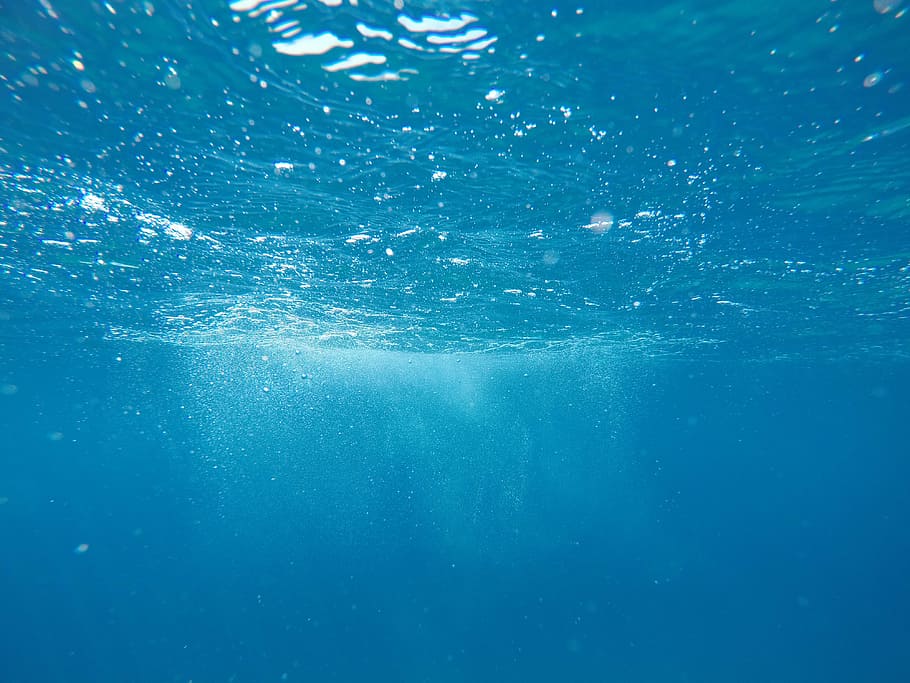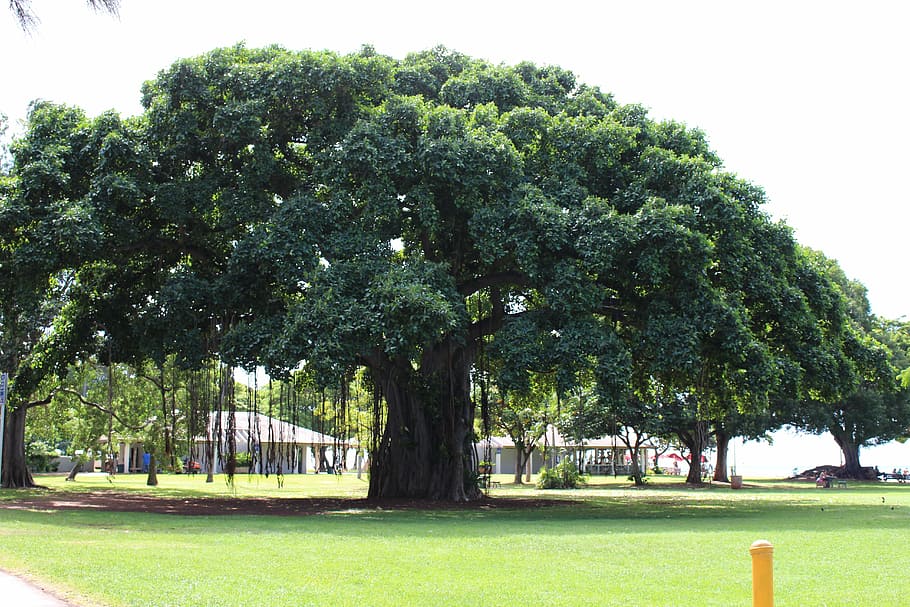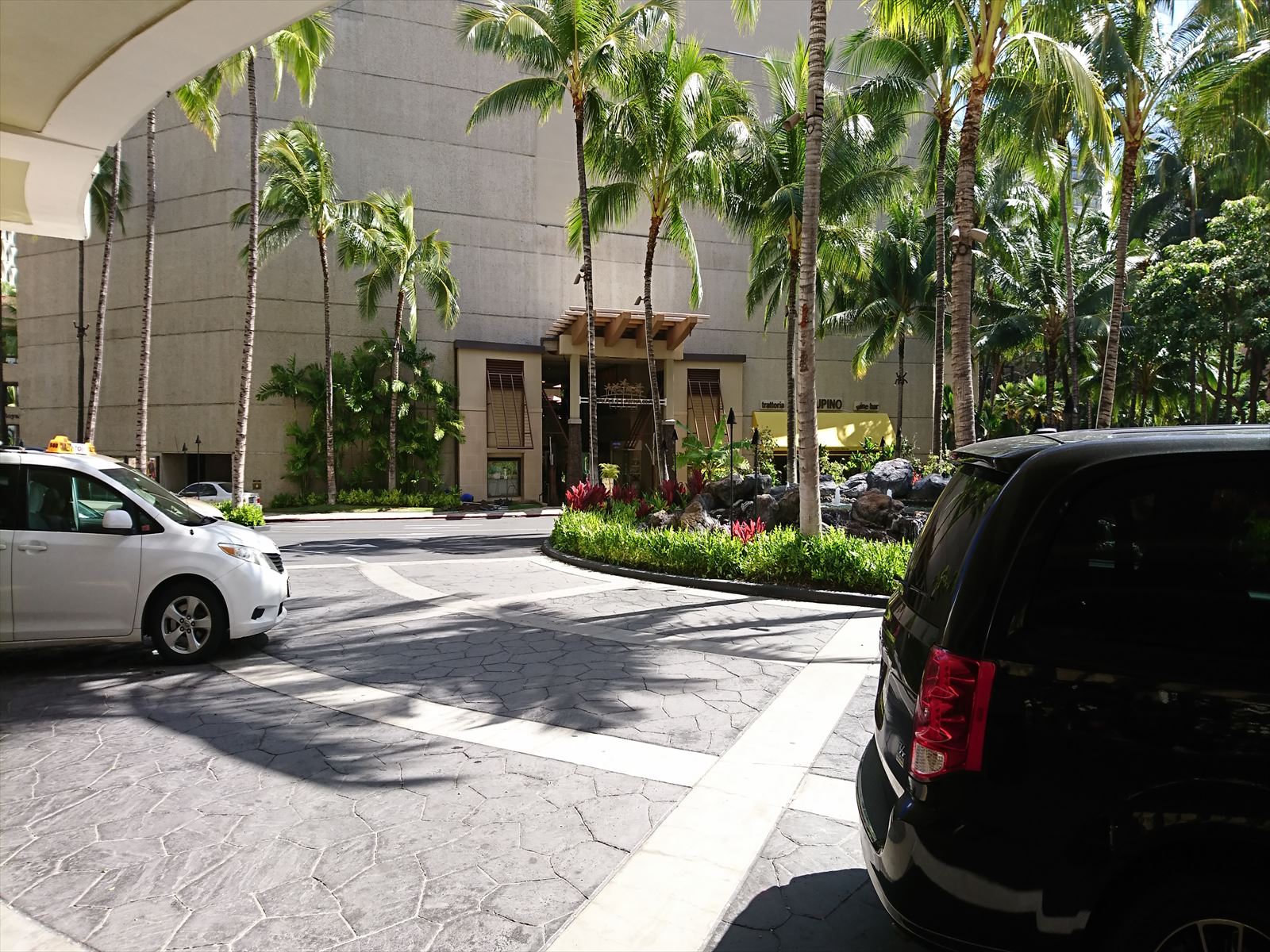キャプティブ 2022.08.15
CA40 なぜキャプティブはハワイに設立した方が良いのか
For those who prefer to read this column in English, the Japanese text is followed by a British English translation, so please scroll down to the bottom of the Japanese text.
財閥系生命保険会社によって誕生したばかりの損害保険子会社、その企業から経営コンサルティングを委嘱され、同社の役員と一緒に「新商品開発」のための業務提携先の調査に海外出張に出たのは、今から四半世紀ほど前、1998年の春であった。
世界のリスクマネジメントの専門家、損害保険のプロフェッショナルが年に1回米国で集まる、RIMS(リムズ:リスク及び保険マネジメント協会:Risk & Insurance Management Society)の年次総会に参加、その後ニューヨークで業務提携先候補の企業、法律事務所等との打ち合わせを終えて訪れた地がバミューダであった。
「キャプティブ事業を将来の事業分野の一つにする」ため、業務提携先候補企業との面談がその目的であった。当時、全世界に存在したキャプティブは3,472社であったが、そのうちバミューダには約40%の1,497社が所在していた。まさに「キャプティブのメッカ」と呼ばれる場所であった。
因みに、当時、日本企業の所有するキャプティブは全世界で78社、バミューダ所在は29社であった。現在、全世界の企業が有するキャプティブの数は約7,000社と倍増しているが、日本企業が有するキャプティブの数は100社程度であり、これから見ても、日本に於けるリスクマネジメント、そしてキャプティブの展開がいかに進んでいないかが分る数字である。

1.バミューダ及びマン島
有名な「タックス・ヘイブン(租税回避地)」であるバミューダは、英領でありながら米国本土に近いこともあり、早くから「キャプティブの効用」に着目した米国企業・保険業界の影響を非常に受けていた場所である。そのため、キャプティブの設立、運営管理をおこなう「キャプティブ・マネージャー」及び「キャプティブ・コンサルティング会社」、またキャプティブの設立文書作成、保険当局への公的文書作成等をおこなう「法律事務所」、キャプティブの資金の入出金に携わる「銀行」、そして「保険当局」、これらキャプティブ・プレーヤーの専門知識、スキルは非常に高く、「複雑なキャプティブの仕組み」にも容易に対応できる設立地(ドミサイル)である。
英国の企業にとっての「バミューダ」は、「マン島」である。「ガーンジー島」、また「アイルランドのダブリン」とともに、キャプティブの一大ドミサイル(設立地)となっている。
専門性に富んでいる反面「複雑なキャプティブ」に対応することが、彼らの「ビジネスモデルの骨格」になっているため、単純なキャプティブの設立、運営管理をおこなうにしては「コストが非常に高い」という弱点がある。
また、リスクマネジメントのためにキャプティブを設立した場合であっても「節税目的」と穿った見方をされかねない場所、「タックス・ヘイブン(租税回避地)」である点にも留意する必要がある。
2.キャプティブの設立・運営管理に必要な専門性
バミューダ、マン島のような「タックス・ヘイブン(租税回避地)」は、「複雑な元受保険の引受・再保険手配が必要となるような案件」に対しては、その効用を大きく発揮することができるであろう、理由は、再保険手配の世界的最大のセンター、ロンドン(シティ)に物理的にも近く、また「複雑な再保険手配を得意とする専門家」との関係も深いからである。その分、キャプティブの設立費用もまた運営管理費用もかなり高くなることも事実であり、「プロフィット・シェアリング(キャプティブ収益の分配)」を条件とするキャプティブ・プレーヤーも存在している。
したがって、多くの日本企業がキャプティブを設立する動機、「全国の自社の建物、財産に関わる地震保険をなんとか大きな補償を低廉な費用で掛けたい、キャプティブの対象になる保険契約は1契約、元受保険会社もキャプティブからの再保険会社もそれぞれ1社」、このようなシンプルなキャプティブ・プログラムの場合には、グローバル・リンクはタックス・ヘイブン・ドミサイルをお勧めすることはしない。
理由は、普通の国産自家用車で良いような、駅までの送り迎え、通勤等のために、「購入・維持コストの高い『イタリアの高級スポーツカー』を持つ必要は無いから」であり、また「それを運転することによる無用の課題やトラブルと類似のことが発生する可能性がある」と考えるからである。

3.キャプティブの設立地(ドミサイルの選定)
キャプティブが「かなりの数の保険契約を対象にした複雑な構造であり、また複雑な再保険のプログラムを必要とするようなもの」であるか、それとも「シンプルなプログラム」、このいずれかによって、キャプティブのドミサイル(設立地)は選ぶべきである。
また、運営管理はキャプティブ・コンサルティング会社に委託するが、キャプティブは自社のリスクマネジメントのための重要な子会社であり、その管理のためにも「日本から行きやすい、交通至便、そして時差が大きく離れていない地が良い」とグローバル・リンクは考える。
「キャプティブの対象になる保険契約も1契約、元受保険会社もキャプティブからの再保険会社もそれぞれ1社」となるキャプティブ・プログラムであれば、グローバル・リンクがお勧めするドミサイル(設立地)は、米国、ハワイ州である。
なぜ「ハワイ」が良いのか、それは、ハワイキャプティブ保険協会(HCIC)が発表している、「日本企業がキャプティブのドミサイルとしてハワイを選択する理由トップ10」に次のとおり(青字)記されている。
① ハワイのキャプティブ保険業界には、知識と経験が豊富で日英バイリンガルの専門家達が各分野で従事している。
キャプティブの運営、管理はキャプティブ・マネージャー単独ではなく、多くのサービス・プロバイダーによって成り立っている。銀行、弁護士、会計士、アクチュアリー(保険数理士)、キャプティブ・マネージャー、そしてグローバル・リンクのようなキャプティブ・コンサルティング会社である。
グローバル・リンクはハワイ州でのキャプティブの設立、運営管理をビジネスモデルの核としている会社であるが、「リスクマネジメントの専門企業」の観点から、自社の経営上の不測の事態を避ける「コンティンジェンシープラン」として、「ハワイ州に替わるキャプティブ設立地(ドミサイル)の選定」のため、日本企業への利便性の点から「日本語サービスの提供が可能なサービス・プロバイダーが存在するドミサイルを探す」という目的で、米国、ヨーロッパで本格的に二度調査をおこなった。結果は、「ハワイ州以外に日本語でのサービスはできる地域は無い」ということが判明した。
世界的に見ても、ハワイ州ほど充実した現地の「キャプティブサポート体制」の基盤があり、かつ日本語が通じるドミサイルは他に無いのである。ハワイ州が、大手日本企業に注目されている大きな理由の一つである。
② ハワイ州保険局とキャプティブオーナーとの間に、協力的で迅速な対応が可能な関係が既に築かれている。
バミューダ、ケイマン、マン島等のドミサイルの保険監督局を訪問、何度か打ち合わせを持ったが、その後ハワイ州の保険局を訪ねてみて、「これほど違うのか」という印象を受けた。「監督機構」という面も勿論有しているが、保険監督官(コミッショナー:保険局長)以下全職員から、「ビジネスパートナーとして、より良いキャプティブをつくっていこう」という姿勢と意気込みを強く感じることができたからである。
③ 円建て資本金や運営資金の保有及び円建ての財務報告が可能であるので、日本の親会社との財務諸表の連結が容易である。
ハワイに設立する子会社であるから「海外展開用」にと「ドル建て」で資金管理をするのが一般的であるが、一定の要件を満たせば「円建て」での資金管理も可能になるような非常に柔軟なキャプティブの監督体制となっている。
④ 海外の再保険及び投資市場を利用することが実現する。
世界最大の金融市場である米国で投資をおこなっているため、再保険料の送金の安全性等からもキャプティブへの評価が高くなるメリットもある。
⑤ 日本・世界とビジネスを行う上でのハワイの地理的に便利な位置に加え、年間を通して安定した快適な気候であるため、出張時期が限定されない。
日本企業がキャプティブを進めていく点から、ハワイにキャプティブを持つことはビジネス上非常に大きなメリットがある。日本とハワイの「時差」である。
日本時間の朝9時がハワイ時間の午後2時であり、日本時間の午前中はハワイの仕事時間と重なっており、「毎日の連絡がごく簡単にできる利点」がある。また、1年中温暖な気候で特に雨期もなく、また7~8時間の海外フライトとしては短い時間で出張できる利便性は大きい。
⑥ ハワイの歴史的な日本との繋がりから日本文化に理解があり、全体的に親日感のある環境の中でビジネスを行うことができる。
現在の保険監督官(コミッショナー:保険局長)はMr. Colin Hayashida(ハヤシダ)であり、前保険局長はMr. Gordon Itoh(イトウ)である。
Family Nameから推察できるとおり、お二人とも日系3世であり、また銀行にも、法律事務所にも多くの日本人、日系人たちがいるため、ハワイは、海外というより「沖縄の少し先にある場所」という親しみの感覚を持てるところである。
⑦ 法律及び規制が柔軟である。
ハワイ州で設立されるキャプティブは、米国の連邦法ではなく、ハワイ州法に基づいて申請、設立される。
米国の他の州や他のドミサイルには見られない特徴であるが、ハワイ州法は保険局長にかなりの権限と裁量が与えているため、例えば、ハワイ州法に法定最低資本金が設定されているものの、最終的な最低資本金の設定は、キャプティブ・プログラムごとに特有な条件を考慮して、保険局長は判断して決定するというように、非常に柔軟な対応が取られているドミサイルである。
⑧ キャプティブ業界に特化した、安定的で世界的に評判の良い政府のインフラが存在する。
多くのドミサイルでは、「一般の保険会社を監督する部署がキャプティブの管理監督もしている」が、ハワイ州では、「キャプティブ専門の監督部署が存在、監督している」のである。
このように、「キャプティブ特有のメリットを活かせるような管理監督がなされている」ことは、キャプティブにとっては大きなメリットであり、こういう点からも「ビジネスパートナーとして、より良いキャプティブをつくっていこうという姿勢と意気込み」が醸し出されているのであろう。
⑨ ハワイは米国のドミサイルのため、日米租税条約のメリットを享受できる。
日米租税条約では、日本と米国との商取引に関わる租税ルールが明確に規定されており、キャプティブも日米租税条約に基づいて運営管理されるため安心である。
また、保険会社に対する米国内の会計や税法のメリットも存在しており、保険会社専用の会計基準や税法が古くから導入されているため、「保険会社としてのキャプティブ」もその恩恵に浴することができることは大きなメリットである。
⑩ 内部監査の要件がない。
ハワイ州はキャプティブに対して、保険局が独立監査人(Independent Auditor)として認定した公認会計士による独立監査を求めているが、「上場企業の監査要件として知られている、内部監査の要件を課していない」ことが特筆されるべきメリットである。
冒頭述べたとおり、世界の損害保険業界にいる友人、知人の力を借りて、日本企業のキャプティブにとって「ベストなドミサイルはどこか」ということを「キャプティブ事業の開始」以来おこなってきたが、調査すればするほど、ハワイ州の優越性と効用の高さを認識することになったのが、この10年間であった。
タックス・ヘイブンに所在する日本企業のキャプティブのほとんどは1970年代、80年代に設立されたものであり、当時「今のハワイ州がドミサイル候補」となっていれば、多くのキャプティブはハワイ州に設立されたのではないかと考えている。
そのことを裏打ちするように、このところ設立される超大手日本企業の保険料1000億円を超えるような非常に巨大なキャプティブを含めて、日本を代表するような企業の新規のキャプティブの多くはハワイ州に設立されているのである。

今回のまとめ
キャプティブ設立は、キャプティブ・マネジメント会社(キャプティブ・マネージャー)、現地法律事務所を中心に、3ヶ月程度掛けて行なうが、特に、キャプティブ・マネジメント会社は、設立時においても、膨大な設立申請書類の作成、保険監督当局への打診等中心的な役割を担うため、キャプティブ設立・運営に関わる高い専門性・経験、当局や現地サービス・プロバイダーとの太いネットワーク、そして、日本企業のビジネスへの深い理解ときめ細かな日本語サービス体制が必須である。
こういう点からグローバル・リンクとしては、この10年間設立、運営してきたキャプティブすべての設立、運営を委任している、「キャプティブの設立、運営に豊富な実績を持つキャプティブ・マネジメント会社(キャプティブ・マネージャー)、アラカイ・グローバル社」、そしてFiRMS社とも業務提携を交わして万全の体制の構築に努めている。
キャプティブ・マネージャーと同様、ある時は更に重要な存在となるのが「キャプティブの登録法務代理人(Legal Counsel)」となる法律事務所である。
グローバル・リンクが協業しているハワイの島津弁護士は、日本で高校卒業まで過ごし、その後米国ニューヨークの大学に留学、卒業、法科大学院の卒業を経て米国で弁護士になり、ハワイの地で多くのキャプティブの設立、運営に携わり、「島津国際法律事務所」を設立した。島津弁護士は、日本企業や日本人の気質に非常に通じており、堪能な英語と日本語でのきめ細かな法務サービスからも、お客様も安心して業務をお願いできる、「余人をもって代えがたい逸材」との定評がある弁護士である。
このように、グローバル・リンクは、まさに「グローバル」な「リンク」によってエキスパート組織を構築することによって、キャプティブの設立、その後のキャプティブの運営管理に於けるお客様のご要望に的確にお応えできる体制を整えている。
執筆・翻訳者:羽谷 信一郎
English Translation
Captive (CA) 40 – Why captives should be established in Hawaii
It was in the spring of 1998, almost a quarter of a century ago, that I was commissioned to provide management consulting services for a new non-life insurance subsidiary of a conglomerate life insurance company, and went abroad with the company’s executives to investigate business partners for “new product development”.
We attended the annual meeting of the Risk & Insurance Management Society (RIMS), a group of risk management experts and non-life insurance professionals from around the world that meets once a year in the US, and then went to New York to hold meetings with potential business partners and law firms. After meeting with potential business partners, law firms and others in New York, and visited Bermuda.
The purpose of the visit was to meet with potential business partners in order to “make captive business one of our future business areas”. At the time, there were 3,472 captives worldwide, of which 1,497, or 40%, were located in Bermuda. It was truly a “Mecca for captives”.
Incidentally, at the time, 78 captives were owned by Japanese companies worldwide, 29 of which were located in Bermuda. Today, the number of captives owned by companies worldwide has doubled to approximately 7,000, while the number of captives owned by Japanese companies is around 100, a figure that shows how little progress has been made in risk management and the development of captives in Japan.
1.Bermuda and the Isle of Man
Bermuda, a well-known “tax haven”, is a British territory that, due to its proximity to the US mainland, was very much influenced by the US corporate and insurance industry, which focused on the “benefits of captives” from an early stage. Therefore, there are a number of captive managers and captive consulting firms that establish and manage captives, law firms that prepare documents for the establishment of captives and prepare official documents for the insurance authorities, banks that are involved in the deposit and withdrawal of funds from captives, and the expertise and skills of these captive players are very high, and they are easily able to deal with “complex captive structures” in their domicile.
For UK companies, “Bermuda’ is the “Isle of Man”. Together with the “Guernsey Island” and “Dublin, Ireland”, it is a major captive domicile.
While they are highly specialised, their business model is based on dealing with “complex captives”, which makes the establishment, operation and management of simple captives very expensive.
It should also be noted that even if a captive is established for risk management purposes, it is a “tax haven “, where it may be viewed as a ” tax-saving operation “.
2. Expertise required to establish and manage the operation of a captive
The ”tax havens” such as Bermuda and the Isle of Man can be of great use for ”complex primary underwriting and reinsurance arrangements” because of their physical proximity to London (the City), the world’s largest centre for reinsurance arrangements, and their close proximity to ”experts in complex reinsurance arrangements”. This also means that the costs of setting up and running a captive can be considerably higher, and there are captive players that require “profit-sharing”.
Therefore, the motivation for many Japanese companies to set up a captive is simple: they want to obtain earthquake insurance for their buildings and properties in Japan at a low cost with large coverage, with one policy for the captive, one primary insurer and one reinsurer from the captive, and they want to establish a captive programme. Global Link does not recommend Tax Haven Domicile for such simple captive programmes.
The reason is that “there is no need to have a ‘luxury Italian sports car’, which is expensive to buy and maintain,” for driving to and from the station, commuting to work, etc., when a normal domestic private car would be fine, and that “there could be similar unnecessary challenges and problems with driving it”.
3. the location of the captive’s establishment (domicile selection)
The domicile of a captive should be chosen according to whether the captive is “a complex structure covering a significant number of policies and requiring a complex programme of reinsurance” or “a simple programme”, either of which would be more appropriate.
The captive will be outsourced to a captive consulting company for administration, but as the captive is an important subsidiary for the company’s risk management, Global Link believes that “it should be easy to reach from Japan, conveniently located and not too far away in terms of time zones”.
For a captive programme with only one policy, one primary insurer and one reinsurer from the captive, Global Link recommends Hawaii, USA, as the domicile of the captive.
The reasons why Hawaii is a good location for a captive insurance domicile are as follows (in blue) in the Top 10 Reasons Why Japanese Companies Choose Hawaii as a Captive Domicile, published by the Hawaii Captive Insurance Institute (HCIC).
① Hawaii’s captive insurance industry is staffed by knowledgeable, experienced and bilingual Japanese-English professionals in their respective fields.
Captives are operated and managed by a number of service providers rather than by the captive manager alone. These include banks, lawyers, accountants, actuaries, captive managers and captive consulting firms such as Global Link.
Global Link is a company whose core business model is the establishment and operational management of captives in the State of Hawaii, but from the perspective of a “specialist risk management company”, it has a “contingency plan” to avoid its own operational contingencies, which includes “the selection of an alternative captive establishment site in Hawaii ( In order to “select a captive location (Domiciles)”, a full-scale survey was conducted twice in the US and Europe with the aim of “finding a Domicile where there is a service provider capable of providing Japanese language services” from the point of view of convenience for Japanese companies. The result was that “there is no other area where Japanese-language services are available except the State of Hawaii”.
Worldwide, there is no other domicile that has such a well-developed local “captive support system” infrastructure and where Japanese is spoken as well as in Hawaii. This is one of the main reasons why Hawaii is attracting the attention of major Japanese companies.
②The State of Hawaii has already established a cooperative and responsive relationship between the Hawaii State Department of Insurance and captive owners.
Having visited and had several meetings with the insurance supervisory bureaus of domiciles such as Bermuda, the Cayman Islands and the Isle of Man, I later visited the Hawaii State Insurance Department and was struck by how different it was. The Hawaii State Department of Insurance was visited by the Commissioner of Insurance (Director of the Department of Insurance) and all the staff, and I strongly felt their attitude and enthusiasm to “create a better captive as a business partner”.
③ Because it can hold capital and operating funds in yen and report its finances in yen, it is easy to consolidate its financial statements with those of its parent company in Japan.
The supervisory system of the captive is very flexible, as it is possible to manage funds in yen if certain requirements are met, although it is common for a subsidiary established in Hawaii to manage funds in dollars for “overseas expansion”.
④ Access to overseas reinsurance and investment markets is achieved.
As investments are made in the US, the world’s largest financial market, the captive also benefits from the safety of remittance of reinsurance premiums, which is highly regarded.
⑤ In addition to Hawaii’s geographically convenient location for doing business with Japan and the rest of the world, the stable and comfortable year-round climate means that the time of year for business trips is not limited.
From the point of view of Japanese companies moving forward with captives, having a captive in Hawaii is a very significant business advantage. The time difference between Japan and Hawaii.
9am Japan time is 2pm Hawaii time, which means that mornings in Japan time coincide with working hours in Hawaii, and there are “advantages in that daily communications can be made very easily”. In addition, there is no particular rainy season with a mild climate all year round, and the convenience of a short overseas flight time of 7-8 hours is significant for business trips.
⑥ There is an understanding of Japanese culture due to Hawaii’s historical ties to Japan, and business can be conducted in an overall friendly environment.
The current Insurance Supervisor (Commissioner: Director of Insurance) is Mr Colin Hayashida and the former Director of Insurance is Mr Gordon Itoh.
As can be inferred from their family names, they are both third-generation Japanese-Americans, and there are many Japanese and Japanese-Americans in the banks and law firms, so Hawaii is more like “a place a little beyond Okinawa” than an overseas country.
⑦ Flexible laws and regulations.
Captives established in Hawaii are applied for and established under Hawaii State law, not US federal law.
A feature not found in other US states or other domiciles, Hawaii law gives considerable authority and discretion to the Director of Insurance, so that, for example, although Hawaii law sets a statutory minimum capital requirement, the final minimum capital requirement is set in consideration of the unique conditions of each captive programme. The Director of the Department is a very flexible domicile, as the Director makes decisions based on his judgement.
⑧ There is a stable and globally reputable government infrastructure dedicated to the captive industry.
In many domiciles, ‘the department that oversees general insurance companies also manages and supervises captives’, whereas in the State of Hawaii, ‘a dedicated captive oversight department exists and supervises captives’.
In this way, “management and supervision is carried out in a way that allows captives to make use of their unique advantages”, which is a great advantage for captives, and this point also seems to create “an attitude and enthusiasm to create better captives as business partners”.
⑨ Hawaii enjoys the benefits of the US-Japan Tax Treaty because it is a US domicile.
The Japan-US Tax Treaty clearly stipulates tax rules relating to commercial transactions between Japan and the US, and captives are operated and managed in accordance with the Japan-US Tax Treaty, which provides peace of mind.
There are also benefits of US accounting and tax laws for insurance companies, and as accounting standards and tax laws specifically for insurance companies have long been introduced, it is a major advantage that ‘captives as insurance companies’ can also benefit from them.
⑩ No internal audit requirements.
Although the State of Hawaii requires captives to be independently audited by a certified public accountant certified by the Department of Insurance as an independent auditor (Independent Auditor), a notable advantage is that it “does not impose internal audit requirements, which are known as audit requirements for listed companies”.
As mentioned at the outset, with the help of friends and acquaintances in the global property and casualty insurance industry, we have been asking ourselves “where is the best domicile” for Japanese captives since the “start of the captive business”, and the more we investigate, the more we realise the superiority and utility of the State of Hawaii. The more we researched, the more we realised the superiority and utility of the State of Hawaii during the last ten years.
Most of the captives of Japanese companies located in tax havens were established in the 1970s and 1980s, and we believe that many captives would have been established in Hawaii if the State of Hawaii had been the “current candidate for domicile” at that time.
This is backed up by the fact that many of the new captives of leading Japanese companies have been established in Hawaii, including the very large captives of very large Japanese companies that are being established these days, with premiums in excess of 100 billion yen.
Summary of this issue
The establishment of a captive takes about three months, with the captive management company (captive manager) and a local law firm playing a central role, especially during the establishment of the captive management company, which is responsible for preparing a vast amount of establishment documents and contacting the insurance regulatory authorities. In particular, a captive management company must have a high level of expertise and experience in the establishment and operation of captives, a strong network with the authorities and local service providers, a deep understanding of the business of Japanese companies and a meticulous Japanese-language service system.
From this point of view, Global Link has formed a business alliance with Arakai Global, a captive management company (captive manager) with a wealth of experience in establishing and operating captives, to which it has delegated the establishment and operation of all captives it has established and operated over the past 10 years, as well as with FiRMS to ensure that it is fully equipped.
As important as the captive manager is, at times even more important is the law firm that acts as the “registered legal counsel of the captive”.
An attorney Shimazu, a Hawaii-based lawyer with whom Global Link works, spent her high school years in Japan, then studied and graduated from university and law school in New York, became a lawyer in the US, was involved in the establishment and operation of many captives in Hawaii, and established Shimazu International Law Office. Ms Shimazu has a strong understanding of Japanese companies and the temperament of the Japanese people, and her attentive legal services in fluent English and Japanese have earned her a reputation as an “irreplaceable asset” with whom clients can feel at ease and entrust their business.
In this way, Global Link has built an expert organisation with a truly “global ” link, which enables it to respond precisely to the needs of clients in the establishment and subsequent management of the captive.
Author/translator: Shinichiro Hatani

